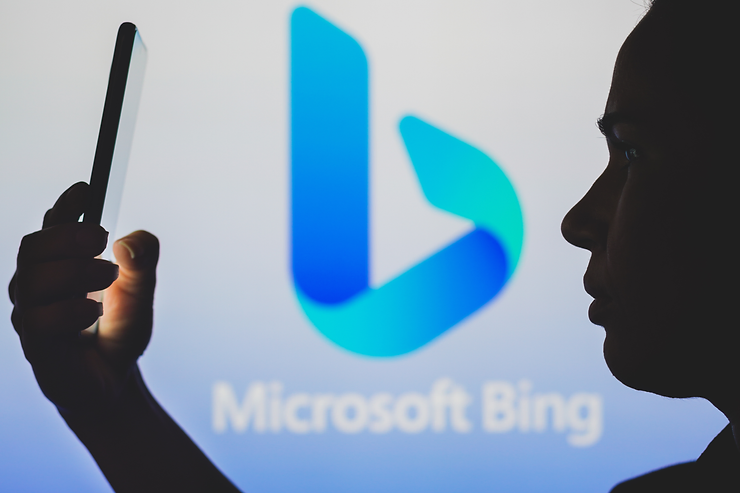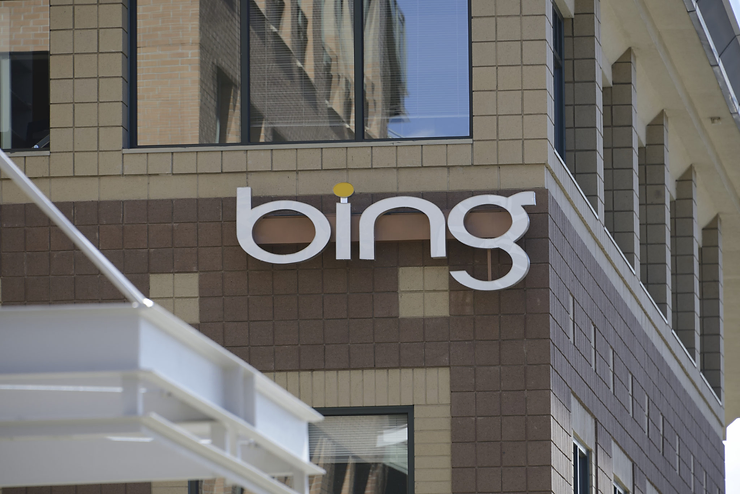What is Bing?
Bing is a web search engine owned and operated by Microsoft. It was launched in 2009 as a successor to Microsoft’s previous search engine, Live Search. Bing provides users with a way to search the internet for websites, images, videos, news, and other types of content.
In addition to its search capabilities, Bing also offers a range of features and tools designed to help users find the information they’re looking for more quickly and easily. For example, Bing’s “Related Searches” feature provides suggestions for related search terms based on the user’s query, while its “Instant Answers” feature provides direct answers to certain types of queries without requiring the user to click through to a website.
Bing also powers the search results for other Microsoft services and products, such as Windows 10’s Cortana digital assistant, Microsoft Edge web browser, and Microsoft Office.

Should I be focussing on Bing SEO?
Whether you should focus on Bing SEO depends on your specific business goals and target audience. While Google remains the dominant search engine worldwide, Bing still has a significant share of the search market, particularly in certain regions and demographics.
If your business operates in a niche industry or serves a specific demographic that is more likely to use Bing, it may be worth investing in Bing SEO. Additionally, if your competition is not optimising for Bing, focusing on Bing SEO could give you an advantage in search results.
However, if your target audience primarily uses Google, it may make more sense to focus your SEO efforts on Google. It’s also important to note that many SEO best practices apply to both search engines, so optimising for one can often benefit your ranking on the other as well.
Ultimately, the decision to focus on Bing SEO should be based on a thorough understanding of your target audience and business goals, as well as an analysis of the search behaviour and preferences of your audience.
Bing Vs. Google - Differences.
Bing and Google are two of the most popular search engines, but there are some key differences between them.
Here are some of the main differences between Bing and Google:
Search Algorithms: Bing and Google use different search algorithms to generate search results. Google’s algorithm uses hundreds of factors to determine the relevance and quality of a website, while Bing’s algorithm is more focused on user intent and social signals.
User Interface: Bing’s user interface is more visually appealing than Google’s, with large background images and more prominent video and image results. Google’s interface is more minimalistic, with a focus on displaying search results quickly and efficiently.
Search Results: While both search engines display search results in a similar format, there are often differences in the types of results that appear. For example, Bing tends to display more local results and social media content, while Google is better at identifying the most relevant websites for a given query.
Voice Search: Google has the advantage in the voice search space, with its Google Assistant being widely used on smartphones and smart speakers. While Bing also offers voice search capabilities, it has not gained the same level of popularity as Google’s voice search.
Google is the dominant search engine worldwide, with a market share of over 90%. Bing has a smaller share of the market, but it still has a significant presence in certain regions and demographics.
Overall, both search engines offer their own unique features and advantages, and which one is best for you depends on your individual needs and preferences.

Source: Impression
5 tips to improve your Bing SEO
Here are five tips to improve your Bing SEO:
Optimise your website for Bing’s crawling and indexing: Bing’s crawling and indexing algorithms are different from those of Google, so it’s important to optimise your website specifically for Bing. This can include ensuring that your website has a clear structure, using descriptive URLs, and submitting a sitemap to Bing.
Focus on user intent: Bing’s algorithm places a strong emphasis on user intent, so it’s important to create content that addresses the needs and questions of your target audience. This can involve conducting keyword research to identify the phrases and topics that are most relevant to your audience and creating content that addresses those queries.
Leverage social media: Bing takes into account social media signals when determining the relevance and popularity of a website, so it’s important to have a strong presence on social media. This can involve regularly posting content, engaging with followers, and promoting your website and content through social media channels.
Optimise for local search: Bing places a greater emphasis on local search than Google, so it’s important to optimise your website for local search queries. This can include using local keywords and phrases, including your business address and contact information on your website, and getting listed in local directories and review sites.
Use multimedia content: Bing places a greater emphasis on multimedia content, such as images and videos than Google. To improve your Bing SEO, consider incorporating high-quality images and videos into your content, and optimising them with relevant titles, descriptions, and tags.












We have been working with Amax Marketing for the last few weeks and have already been impressed with the results we've seen.
As experts in outreach and digital PR, we knew we'd be in safe hands. We are looking forward to the coming months, and getting some fantastic results!